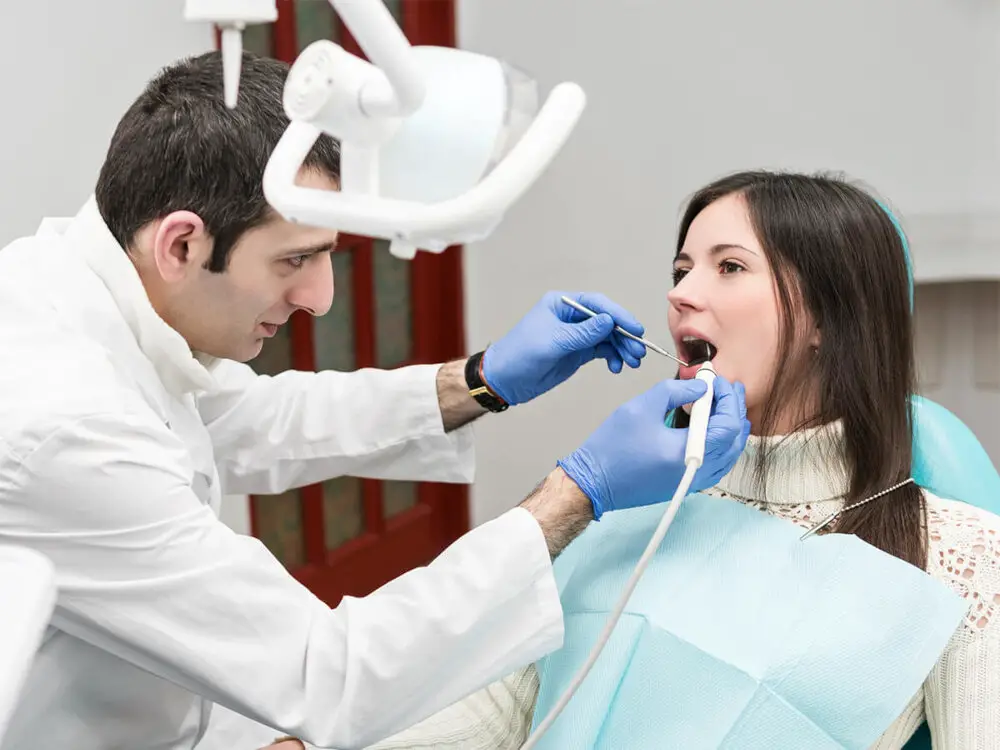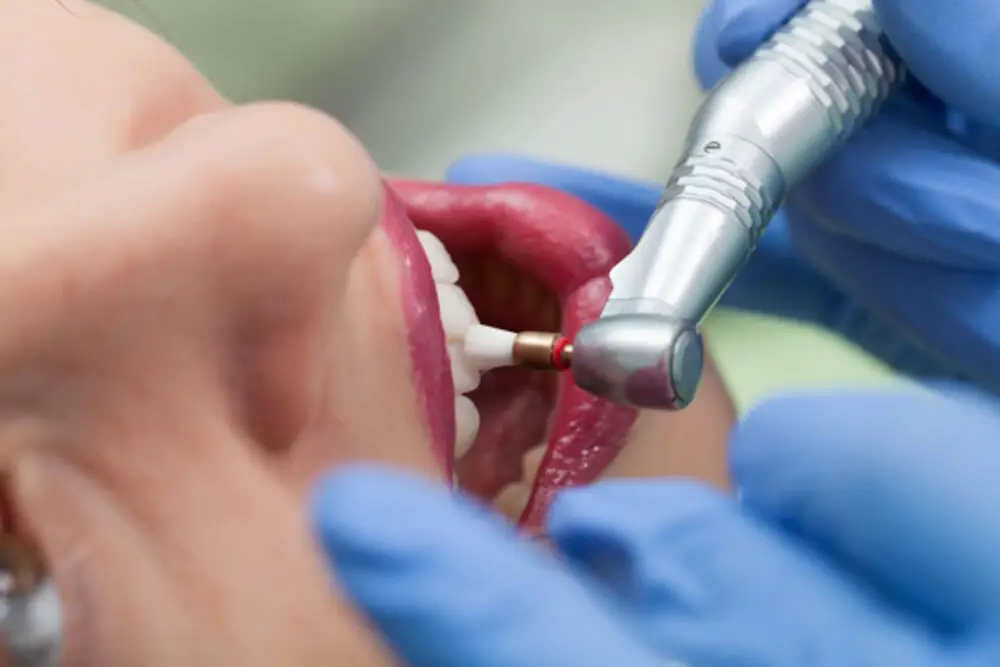When Do Wisdom Teeth Erupt? Understanding the Age and Process of Wisdom Teeth Development

Wisdom teeth are the third set of molars that develop in the back of the mouth. They usually emerge in early adulthood, often causing discomfort and pain due to their size and positioning. Many people wonder when their wisdom teeth will erupt and what to expect during the process. Understanding the age and process of wisdom teeth development can help individuals prepare for this common dental occurrence. The eruption of wisdom teeth varies from person to person, but it typically occurs between the ages of 17 and 25. Some people may experience the emergence of their wisdom teeth earlier or later than this age range, while others may never develop them at all. The process of wisdom teeth development involves the growth and movement of these teeth through the gums and into the mouth. Though this process is natural, it can cause discomfort, pain, and other oral health concerns. Therefore, it is important to understand the age and process of wisdom teeth development to ensure proper care and management of oral health.
Wisdom teeth, also known as third molars, are the last set of permanent teeth to emerge in the mouth. They typically develop in the late teenage years or early twenties and are located at the back of the mouth, behind the second molars. These teeth can be a valuable asset when they are healthy and properly aligned, but they can also cause problems if they become impacted or do not have enough space to grow. In some cases, wisdom teeth may need to be removed to prevent infection, decay, or other dental issues. The eruption of wisdom teeth can vary from person to person, and it is important to consult with a dental professional to understand the age and process of wisdom teeth development.
Understanding the age and process of wisdom teeth development is crucial to maintaining optimal oral health. Wisdom teeth usually erupt between the ages of 17 and 25, but the process can vary from person to person. It’s important to keep an eye on the development of these teeth to prevent potential problems such as impaction, infections, and damage to surrounding teeth. Knowing the timing of wisdom teeth eruption can also help you plan ahead for any necessary dental procedures. Regular dental check-ups and X-rays can help track the progress of wisdom teeth development and ensure that any issues are addressed before they become serious. Overall, understanding the age and process of wisdom teeth development is essential for maintaining healthy teeth and gums.
When Do Wisdom Teeth Erupt?

Wisdom teeth, also known as third molars, are the last set of teeth to erupt in the human mouth. Typically, wisdom teeth eruption occurs between the ages of 17 and 25, but it can vary from person to person. Some people may not develop wisdom teeth at all, while others may have them erupt earlier or later than average. In rare cases, wisdom teeth may even erupt in childhood or as late as the 40s or 50s. The timing of wisdom teeth eruption is influenced by factors such as genetics, diet, and oral hygiene. The process of wisdom teeth eruption can be uncomfortable and even painful for some people. As the teeth push through the gums, they can cause swelling, pain, and tenderness in the surrounding tissues. In some cases, the teeth may become impacted, meaning they are unable to fully emerge from the gumline. This can lead to infection, damage to adjacent teeth, and other complications. In order to avoid these issues, it is important to monitor the development of wisdom teeth and consult with a dental professional if any problems arise.
Wisdom teeth, also known as third molars, are the last set of permanent teeth to emerge in the human mouth. The typical age range for the eruption of wisdom teeth is between 17 and 25 years old. However, the exact timing of their eruption can vary greatly from person to person. Some individuals may experience the eruption of their wisdom teeth as early as age 14 or as late as their mid-30s. The eruption process can be painful and uncomfortable, as the teeth push through the gums and into the mouth. It is important to monitor the development of wisdom teeth and consult with a dental professional if any issues arise.
Wisdom teeth, or third molars, are notorious for their unpredictable eruption times. While most people experience the eruption of their wisdom teeth between the ages of 17 and 25, there is a significant amount of variation in this timeline. Factors such as genetics, gender, and overall health can all impact when and how wisdom teeth develop. Some individuals may experience early or delayed eruption, while others may never develop wisdom teeth at all. Furthermore, the process of wisdom tooth development can be accompanied by a range of symptoms, including pain, swelling, and infection. Understanding the potential variations in eruption time can help individuals prepare for and manage the process of developing wisdom teeth.
The eruption time of wisdom teeth can be influenced by several factors, including genetics, gender, diet, and oral hygiene. Genetics play a significant role in determining the timing of wisdom teeth development, as some people may have a genetic predisposition for delayed or accelerated eruption. Gender can also be a factor, as women tend to experience earlier eruption than men. Diet can affect wisdom teeth development by providing the necessary nutrients for healthy tooth growth, while poor oral hygiene can lead to overcrowding and impaction of the teeth. Additionally, certain medical conditions and medications can also impact the timing of wisdom teeth eruption. It is important to monitor the development of wisdom teeth and consult with a dental professional if any concerns arise.
The Process of Wisdom Teeth Development

Wisdom teeth, also known as third molars, develop at the back of our mouths and are the last teeth to erupt. Wisdom teeth development typically begins around the age of 17-25. However, some people may experience late or early development of wisdom teeth. The process of wisdom teeth development can be uncomfortable and may require dental intervention in some cases. The development of wisdom teeth starts with the formation of tooth buds, which are tiny tooth structures that eventually grow into fully-formed teeth. These tooth buds are located behind the second molars and begin to develop roots that push the tooth towards the surface of the gums. As the roots continue to grow and the teeth move closer to the surface, the gums may become inflamed and cause discomfort. In some cases, the wisdom teeth may not have enough space to emerge, causing impaction and potentially leading to infection or damage to surrounding teeth. Therefore, it is important to monitor the development of wisdom teeth and seek dental advice if any problems arise.
Tooth development is a complex process that starts as early as the sixth week of fetal life. It goes through several stages, including bud, cap, bell, and eruption. During the bud stage, a small swelling appears on the gum line, which later grows into a cap-shaped structure. The cap stage is the most critical stage of tooth development, where the tooth’s basic shape and structure are formed. The bell stage is when the tooth acquires its final shape and structure, and the enamel, dentin, and pulp layers are formed. Finally, the eruption stage is when the tooth moves through the gum line and becomes visible in the mouth. Wisdom teeth typically start developing during adolescence and can complete their eruption process by early adulthood. However, the eruption of wisdom teeth can be a painful and complicated process, requiring dental intervention in some cases.
Wisdom teeth, also known as third molars, typically develop and erupt between the ages of 17 and 25. These teeth are the last of the molars to develop in the back of the mouth and are often associated with pain and discomfort during their eruption. The formation of wisdom teeth is a complex process that involves the growth of a tooth bud from the dental follicle, which is a sac-like structure that surrounds the tooth. As the tooth bud grows, it pushes through the jawbone and into the gum tissue, where it eventually erupts into the mouth. However, due to the limited space in the mouth, wisdom teeth often become impacted, meaning they are unable to fully emerge from the gum tissue. This can lead to a variety of dental problems and may require surgical extraction.
The development of wisdom teeth is a complex process that is influenced by various factors, including genetics. Studies have shown that the presence of wisdom teeth is hereditary, meaning that if your parents have had them, you are more likely to develop them as well. Additionally, the timing and number of wisdom teeth that an individual develops can also be influenced by genetics. For example, some people may only develop two wisdom teeth or none at all, while others may develop all four. While genetics plays a significant role in wisdom teeth development, other factors such as diet, oral hygiene, and overall health can also affect the process.
Common Problems Associated with Wisdom Teeth

As the third molars, wisdom teeth typically erupt between the ages of 17 and 25. However, many individuals experience problems associated with these teeth, such as impaction, infection, and overcrowding. Impaction occurs when the tooth does not fully emerge from the gum line, causing pain and swelling. Infection can result from bacteria entering the open gum tissue around the partially erupted tooth, leading to pain and discomfort. Overcrowding happens when there is not enough space in the mouth for the wisdom teeth to grow in properly, causing misalignment and potential damage to neighboring teeth. One of the most common problems associated with wisdom teeth is the need for extraction. In some cases, the tooth may be impacted or only partially erupted, making it difficult to clean and increasing the risk of infection. Additionally, wisdom teeth may cause discomfort and pain in the jaw and surrounding teeth. In these cases, extraction is often recommended to prevent further problems and complications. While extraction can be a simple procedure, it is important to consult with a dental professional to determine the best course of action for your individual needs.
Impacted wisdom teeth can be a painful and uncomfortable experience for many people. This occurs when the wisdom teeth do not have enough room to emerge properly and become trapped or partially erupted in the gums. Symptoms of impacted wisdom teeth can include pain, swelling, and infection. If left untreated, impacted wisdom teeth can cause damage to nearby teeth, gums, and nerves. In some cases, impacted wisdom teeth may need to be surgically removed to alleviate discomfort and prevent further complications. It is important to consult with a dental professional if you suspect you may have impacted wisdom teeth.
Infections can be a serious complication when it comes to wisdom teeth eruption. As the teeth begin to emerge, there may not be enough space in the mouth to accommodate them, leading to impaction. This impaction can then lead to bacterial buildup, which can cause infection. Symptoms of infection can include pain, swelling, and fever. If left untreated, the infection can spread and cause more serious health problems. It is important to monitor the development of wisdom teeth and seek dental care if any symptoms of infection arise.
Crowding and misalignment are common issues that occur when wisdom teeth erupt. Due to limited space in the jaw, wisdom teeth can push against neighboring teeth, causing discomfort, pain, and even infection. Misalignment can also occur when wisdom teeth grow in at an angle, causing them to push against other teeth or grow into the gums, leading to various dental issues. The severity of crowding and misalignment can vary from person to person, with some individuals experiencing minimal symptoms while others may require surgical intervention to correct the problem. It is essential to monitor the development of wisdom teeth closely and consult with a dental professional to determine the best course of action.
Cysts and tumors are potential complications associated with the development of wisdom teeth. Cysts are fluid-filled sacs that can form around the tooth, while tumors are abnormal growths that can develop in the surrounding tissues. These conditions can cause pain, swelling, and damage to nearby teeth and bone. In some cases, they may even lead to more serious health problems, such as infection or nerve damage. Monitoring the development of wisdom teeth and addressing any issues early on can help prevent these complications and ensure optimal oral health.
Management of Wisdom Teeth

The management of wisdom teeth is a crucial aspect of oral health as their eruption can cause a variety of dental issues. Wisdom teeth, also known as third molars, typically emerge between the ages of 17 and 25, and sometimes they may not even erupt at all. When wisdom teeth do emerge, they can cause swelling, pain, and discomfort, which can lead to infections and other oral health problems. To manage the eruption of wisdom teeth, regular dental checkups are recommended, enabling the dentist to monitor the growth and development of the teeth. X-rays may also be taken to determine the position and condition of the wisdom teeth. If a dentist determines that the wisdom teeth are impacted, meaning they do not have enough space to emerge properly, the teeth will need to be removed surgically. This procedure is generally performed under local anesthesia and can be done in the dental office or in a hospital setting. If left untreated, impacted wisdom teeth can cause damage to surrounding teeth and gum tissue. In addition to surgical removal, other management techniques for wisdom teeth include regular cleaning, using mouthwash, and taking over-the-counter pain medications to manage any discomfort associated with their eruption. Overall, it is important to maintain good oral hygiene and seek professional dental care to manage the development and eruption of wisdom teeth.
Monitoring is an essential aspect of understanding the age and process of wisdom teeth development. The eruption of wisdom teeth can cause discomfort, pain, and even infections if not monitored properly. Dentists recommend regular check-ups to monitor the growth and development of wisdom teeth. Through monitoring, dentists can determine if wisdom teeth are developing correctly, if they are impacted, or if they are causing any damage to the surrounding teeth or gums. Early detection of any issues can lead to a more successful and less painful treatment plan. Therefore, it is crucial to monitor the development of wisdom teeth to ensure healthy oral hygiene and overall well-being.
Extraction is a common dental procedure that involves the removal of a tooth or teeth from the mouth. Wisdom teeth extraction is a frequently performed procedure, as these molars often cause problems due to their late eruption and limited space in the jaw. The extraction process typically involves administering anesthesia to numb the affected area and using specialized tools to carefully remove the tooth or teeth. It is important to follow post-operative instructions provided by the dentist, which may include taking pain medication, applying ice to reduce swelling, and avoiding certain foods and activities. While extraction may seem daunting, it is a routine procedure that can help alleviate pain and prevent further dental issues.
Postoperative care is crucial for patients who undergo wisdom teeth extraction. After the procedure, patients should rest and avoid any strenuous activities for at least 24 hours. Patients should also apply ice packs to the affected area to reduce swelling and discomfort. Pain medication and antibiotics may be prescribed to manage pain and prevent infection. It is important for patients to follow the prescribed medication regimen and attend any follow-up appointments with their dentist or oral surgeon. Patients should also avoid smoking and using straws, as these activities can dislodge the blood clot that forms over the extraction site, leading to a painful condition known as dry socket. By following postoperative care instructions, patients can ensure a smooth recovery and minimize the risk of complications.
In summary, wisdom teeth are the third molars that typically emerge between the ages of 17 and 25. The development and eruption of these teeth can be a painful and uncomfortable process, but it is a natural part of the human growth process. As the jaw continues to grow and evolve, wisdom teeth may become impacted or cause overcrowding in the mouth. Understanding the age and process of wisdom teeth development is crucial for individuals to take proactive steps such as regular dental checkups and proper oral hygiene to prevent any complications or discomfort associated with these molars.
Seeking professional advice on wisdom teeth management is crucial for a number of reasons. First and foremost, a dental professional can accurately assess the development and positioning of your wisdom teeth, and determine whether they are likely to cause any issues in the future. They can also provide guidance on the best course of action to take if your wisdom teeth are causing problems, such as pain or infection. Additionally, attempting to manage wisdom teeth on your own can lead to complications, such as improper healing or damage to surrounding teeth or tissue. Overall, consulting with a dental professional regarding wisdom teeth management can help ensure the best possible outcome for your oral health.
Conclusion

In conclusion, the development of wisdom teeth is a natural process that occurs in most individuals between the ages of 17-25. While the eruption of wisdom teeth can cause discomfort and even pain, it is important to understand the process and seek professional advice if necessary. Regular dental check-ups and X-rays can help monitor the growth and development of wisdom teeth, and if extraction is required, it is best to seek professional assistance to avoid any potential complications. Ultimately, understanding the age and process of wisdom teeth development can help individuals prepare for any potential issues and ensure optimal oral health.







